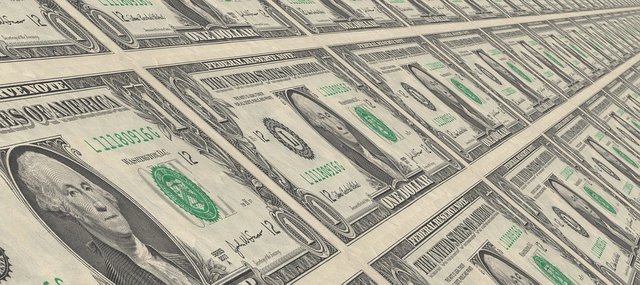
Exoneratism realizes that many first world countries are similar in that they have both capitalistic and socialistic principles at work in their economies.
Perhaps at this point we should deal with some complications that might arise in the reader’s acceptance of certain definitions of terminology as used herein. The first necessity of acceptance of any definition is understanding and the second necessity of acceptance of any definition is acknowledgement.
Capitalism
Capitalism is an economic system. The term Capitalism was initially broadly defined as “private ownership of the means of production and distribution as land, factories, railroads etc., are privately owned and operated for profit under competitive conditions.” Capitalism and free market are not completely synonymous terms as the following denotes:
“Free markets do not define capitalism, although they are an essential part of it. A free market is driven by ‘demand and supply’ leading to free competition without interference while in capitalism, capital owners can at times influence the terms of trade. . . . Free market is mainly concerned with wealth exchange while capitalism leans more on wealth creation.” (1)
Throughout America’s lifespan, capitalism and the free market have worked within the bounds of competition. But, it is also true that too many times profits have often been concentrated with certain specific corporations.
It is also true that large corporations have had influence through lobbies, so that the government has influenced competition in favor of these corporations and this has altered conditions. This situation has prompted ‘the slang term “crony capitalism” to emerge.
David D’Amato describes crony capitalism as, “. . . today’s gamed and rigged, government-dominated economic system, wrongly represented as and believed to be a true free-market economic system (by friends and foes alike, it must be noted). (2) According to Crony Capitalism, success in business depends on close relationships between business people and government officials. This is corporate welfare – another example where a segment of society, the wealthy corporations, are aided by the government at a cost to other segments, the small corporations and the small businesses. Hopefully this pendulum will swing back.
Socialism
Socialism is an economic system where policies are created for the benefit of society rather than individuals. In this ideology, the state takes over the economy, all ownership of the means of production and distribution, thus equalizing the members of society. In 1776 America threw off the crown, because the Crown did not exhibit an environment that fit the needs of the society. America made the individual the necessary decision maker. But socialism draws back into the situation of the crown – the state takes the place of the crown.
Capitalism and Socialism Combination
Exoneratism professes a controlled egalitarian idealism, and views the combination of Capitalism and Socialism as necessary in this pursuit. “Also, both economic systems overlap in many areas.
“For example, America, a capitalist democracy, has public education for the masses, state owned and controlled universities, student grants, subsidized loans, job training, GI Bills, Social Security, Medicare, Medicaid, temporary food stamps, public housing, public transportation, state run military, 40 hour work weeks, overtime pay, minimum wage, work place safety laws, workman's compensation, environmental regulation, laws against corporate fraud, force banks to insure with the federal government, manipulate interest rates to control inflation, etc, etc, etc.” (3)
And most of the above are found in a socialist republic as well as a capitalistic republic.
Socialism Not Antithesis of Capitalism
Let’s look at capitalism and socialism as defined by Karl Marx:
“. . . drawing from Hegel's dialectic philosophy, Karl Marx . . . argued that socialism is an "antithesis" of capitalism; and that socialism is an "intermediate, yet inevitable stage" from capitalism preceding pure communism.” (4)
We understand that Marx is defining capitalism and socialism as opposites. But we cannot acknowledge that definition, because capitalism and socialism have too many aspects in common. As discussed above, both capitalistic and socialistic principles are ingrained in these two economic/political ideologies, thereby refuting Marx’s statement that one is the exact opposite of the other.
(2) David D”Amato, The Hill.contributor 3-20-2017
I'm not sure corporations are aided by government so much as they're embedded within government.
Downvoting a post can decrease pending rewards and make it less visible. Common reasons:
Submit
If understand capitalism to mean a system that uses savings to produce capital, which can lead to profit, where does capital come from under socialism?
Downvoting a post can decrease pending rewards and make it less visible. Common reasons:
Submit